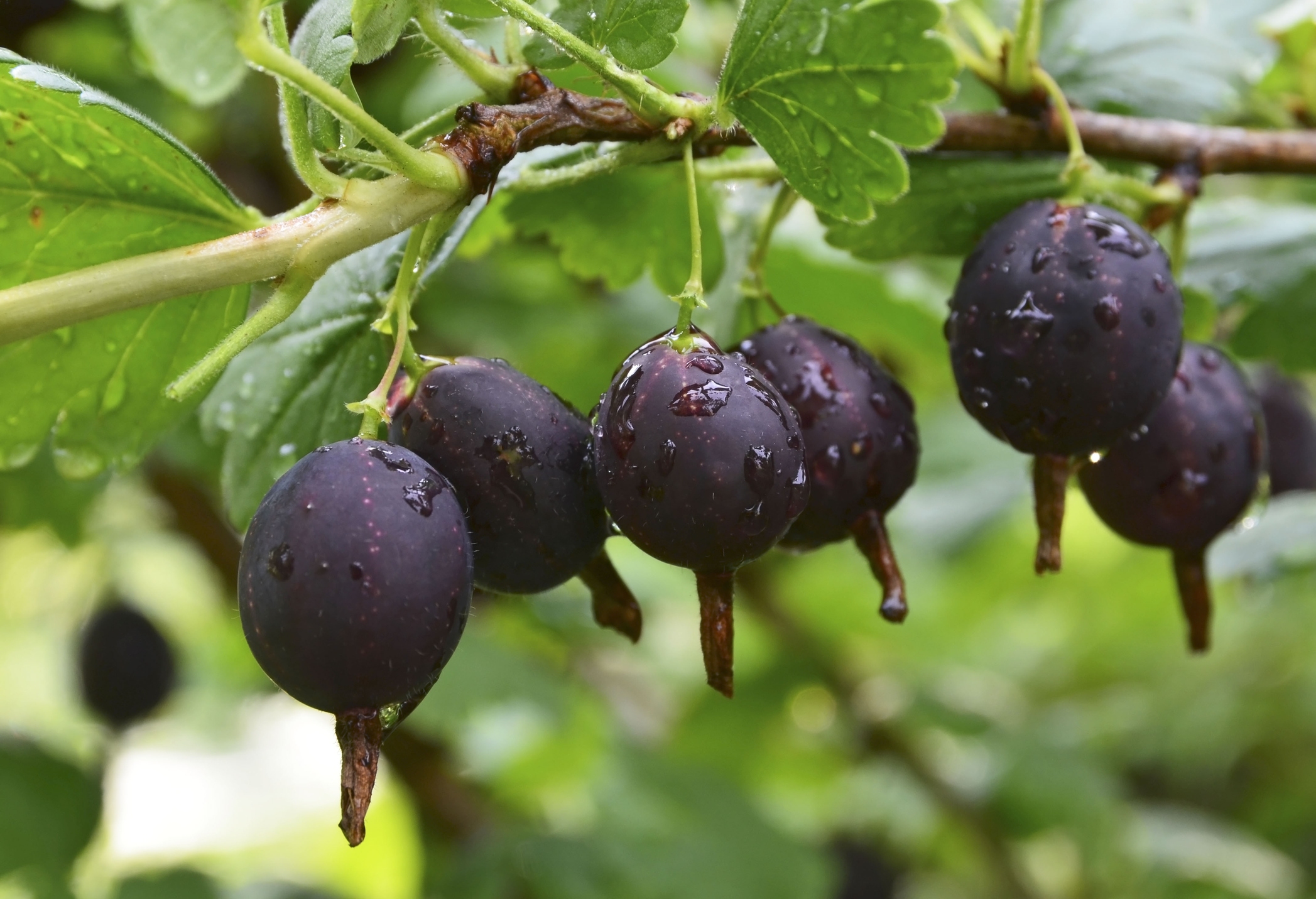Jostaberry
Jostaberries are a relatively modern fruit, arising as a cross between the black currant and the gooseberry. Bearing the scientific name Ribes nidigrolaria, this dark-coloured, almost black berry combines the best traits of its parent plants, resulting in a versatile and hardy fruit with a unique taste. In Alberta, jostaberries are becoming increasingly popular in gardens for their resilience and delicious yield.

More on Jostaberry
About
The jostaberry bush is a robust plant, capable of withstanding colder temperatures, making it suitable for cooler climates. The fruit itself is larger than a black currant but smaller than most gooseberries, possessing a skin that's smoother than a gooseberry but not as glossy as a black currant.
Jostaberries offer a complex flavour profile: a balance between the tartness of the gooseberry and the sweetness and depth of the black currant.
In terms of nutritional content, they are rich in vitamin C, antioxidants, and other beneficial compounds, mirroring the health benefits of their parent fruits. Being thornless, the jostaberry bush is also easier to handle than many gooseberry varieties.
History
The story of the jostaberry is one of intentional botanical engineering. It was developed in the mid-20th century as part of an effort to produce berries that combined the best characteristics of currants and gooseberries while also being resistant to common pests and diseases. The name "jostaberry" is derived from the German words for black currant ("Johannisbeere") and gooseberry ("Stachelbeere").
Although it's a newer addition to the berry world, the jostaberry has steadily grown in popularity, especially among home gardeners and organic farmers who appreciate its hardiness and the fact that it's less susceptible to certain pests compared to its parent plants.
Ways To Cook
Like its parent fruits, the jostaberry is versatile in the kitchen. After a gentle wash, they can be eaten fresh, providing a burst of tartness and sweetness. They are fantastic additions to fruit salads, giving them a unique flavour twist. Given their balanced taste, jostaberries are exceptional for making jams, jellies, and preserves, often requiring less sugar than other fruits. Their juice can be extracted and used in beverages, syrups, or even as a base for homemade ice cream and sorbets. For those with a sweet tooth, jostaberries can be incorporated into baked goods, like muffins, pies, and tarts. Like other berries, they can also be frozen for extended storage, ensuring a supply for off-season culinary experiments.
Whether consumed fresh or as part of a dish, jostaberries are a delightful fusion of flavours and a testament to the wonders of botanical cross-breeding.
